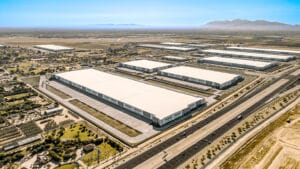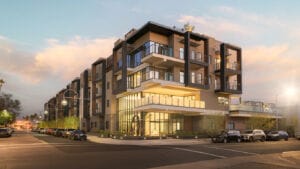The city of Phoenix is long overdue for a makeover, and now, it just might happen. On Sep.18, the Phoenix City Council announced they are embarking on a new initiative to address the aging infrastructure and surroundings.
The new plan, approved on July 17, 2024, aims to aid those affected by inflation rates and post-pandemic issues, both of which have drastically changed Arizona’s economy.
MORE NEWS: The 10 fastest-growing housing markets in Arizona
At the council meeting on Sept 18,2024, residents brought up concerns about safety and housing. Many residents had opinions on how it could be improved to support the greater Phoenix community.
Efforts to improve affordable housing, like the street outreach program, a national initiative to provide affordable housing and job opportunities, has struggled to deliver in Phoenix. The issue for unhoused individuals was aggravated after the city recently removed over 900 unhoused individuals from “The Zone,” an area on the west side of downtown known for its large homeless population. While this cleared a visible section of the city, only a small fraction of those affected have found permanent housing.
“The street outreach program that was created for homeless people like myself, the program had 648 people; outreach only gave 35 individuals permanent housing and 514 members went back to homelessness,” said Elizabeth Venable, a former street outreach program resident.
In March, the Federal Housing Department agreed to expand the Affordability Act by $400,000 dollars and 10 years until 2034 for Phoenix residents. As of September, Phoenix offers 11 affordable housing properties in its portfolio, from the N. 27th Avenue family-style housing to E. Portland apartments but the residences are plagued with health and safety issues.
While over 2,500 affordable units have been developed in recent years, funded by public-private partnerships that combine city resources and private investment, challenges remain.
City governments have implemented a variety of strategies to attract and incentivize affordable housing development. These include tax incentives, grants, and zoning changes aimed at reducing barriers for developers to build low-cost housing.
As the housing crisis deepens, city planners have increasingly turned to multifamily development, particularly in areas like Downtown and West Phoenix.
Downtown Phoenix alone saw the completion of 1,500 apartment units in 2022, with projections of 3,000 more by 2024. Mixed-use developments, which combine residential and commercial spaces, are also gaining traction. Approximately 60% of new projects in the Valley are mixed-use, further contributing to urban growth while addressing the demand for affordable housing.
“I have been in the hospital twice because of black mold in my room in affordable housing. The police take us off the street into these terrible conditions,” said Emmaline Ramirez, a current resident of affordable housing.
Property managers were not given subsidized funding for housing maintenance from January 2023 until July 2024, which caused a major delay in housing upkeep, leading to people like Ramirez falling through the cracks. The infrastructure of affordable housing has not kept up with the growing number of residents who need help especially to keep the homes safe and sustainable to live in.
“They effectively were moving us into a so-called better life, but that’s not true, so that’s why I preferred living my tent in the Zone because at least there was no mold in my tent,” said Ramirez.
The city consultant team will monitor the fiscal review of the new funds’ distribution to ensure the homes’ hospitality.
“I manage a group of assisted living facilities; it makes me so sad to hear people like you and me do not feel comfortable or safe in government housing,” said Maria Esparza, community care owner.
The City of Phoenix’s next initiative to help the unhoused population is at the next annual budget approval for general funds. Organizations such as the American Rescue Plan Act, Head Start Fund, and the Workforce Investment and Opportunity Act are programs that council members are looking into for next year’s budget planning.




